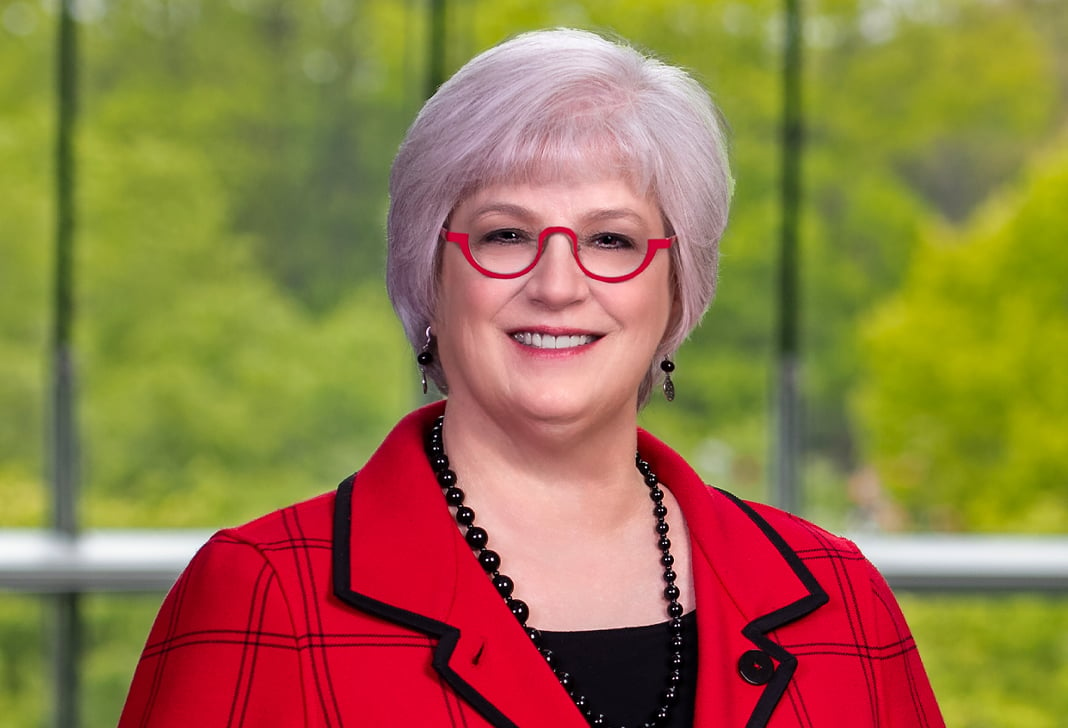
The CFTC Proposes Expansive Business and Governance Rules for Registered Derivatives Markets
In Short
The Situation: The Commodity Futures Trading Commission ("CFTC") recently proposed new and modified conflicts of interest, fitness, and governance regulations for swap execution facilities ("SEFs") and designated contract markets ("DCMs").
The Proposed Rule: The proposal would: (i) require key individuals associated with SEFs and DCMs to meet minimum fitness requirements (potentially including a subjective measurement of these persons' reputations); (ii) modify existing conflicts of interest rules; and (iii) codify for DCMs and SEFs an existing "acceptable practice" regarding the percentage of DCM board members that must be "public directors."
Looking Ahead: Given the lack of any significant governance or conflicts issues having arisen with SEFs and DCMs, the rulemaking marks an effort to foresee and get in front of potential issues as the pace of change in markets and their underlying technology accelerates. Whether and how these proposals will affect those secular developments remains to be seen but merits careful consideration.
Background
In 2000, Congress enacted the Commodity Futures Modernization Act ("CFMA"), which created a framework for regulating DCMs through "core principles" with which DCMs had to comply. Among other things, the CFMA required DCMs to have certain rules on conflicts of interest, governance, and minimum fitness standards for certain individuals. In the years following the enactment of the CFMA, the CFTC published guidance relating to conflicts of interest, governance, and fitness requirements.
In 2010, Congress enacted the Dodd–Frank Wall Street Reform and Consumer Protection Act. Dodd-Frank, among other things, created a new type of regulated entity known as a swap execution facility. Dodd-Frank also extended the core‑principle regulatory structure to SEFs and subjected such entities to similar standards as DCMs regarding conflicts of interest, governance, and minimum fitness standards.
In 2012, the CFTC adopted a final rule establishing the manner in which DCMs are required to comply with some of the core principles. The CFTC, however, did not alter the standards for DCMs relating to governance and fitness standards or conflicts of interests, opting to leave in place its existing guidance. In 2013, the CFTC adopted a final rule establishing regulatory requirements for SEFs. SEFs operate under somewhat different standards for conflicts of interests and governance fitness standards than DCMs. For example, DCMs are subject to specific statutory core principles addressing governance, while SEFs are not.
The Proposed Rule
On February 20, 2024, the CFTC published a proposed rule regarding governance requirements, conflicts of interest standards, and minimum fitness requirements for SEFs and DCMs. The proposal aims to generally harmonize, enhance, and establish uniform rules for DCMs and SEFs relating to these requirements. The proposed rule is lengthy and establishes many discrete requirements for SEFs and DCMs, as discussed below.
Fitness Standards
Minimum Fitness Requirements. Under the current regulations, certain individuals involved in the governance, daily management, and ownership of DCMs and SEFs are required to meet certain minimum fitness requirements in order to hold their positions. These fitness requirements broadly aim to ensure that individuals in these positions not only have relevant experience, but also that they have not engaged in certain types of unlawful or inappropriate behavior in the past.
The proposed rule would apply to both SEFs and DCMs and would extend the minimum fitness requirements to certain individuals, including officers, owners of 10% or more of a SEF or DCM, and members with voting privileges at a SEF and DCM. The proposed rule would also disqualify individuals from serving in these enumerated roles if they:
- Are found within the prior three years to have: (i) violated self-regulatory organization rules, with certain exceptions; (ii) violated the Commodity Exchange Act ("CEA") or CFTC regulations; or (iii) failed to exercise supervisory responsibility in violation of self-regulatory organization rules, the CEA, or CFTC regulations;
- Entered into a settlement agreement within the prior three years involving a violation described in (1);
- Are currently suspended from trading on any DCM or SEF, suspended or expelled from any self-regulatory organization's membership, or on probation;
- Owe any portion of a fine related to (1) or (2); or
- Are currently subject to an agreement with the CFTC, the Securities Exchange Commission, or any self-regulatory organization not to apply for registration or membership, respectively.
"Sufficiently Good Repute." The proposed rule also makes clear that the CFTC is considering adding an additional minimum fitness requirement that individuals subject to fitness standards must be in "sufficiently good repute." The CFTC did not explicitly propose including a "sufficiently good repute" standard in the proposed rule but suggested that it might add such a standard in the final rule. The following is the standard the CFTC is considering:
"Minimum standards of fitness for the SEF's and DCM's officers and for members of its board of directors must include the requirement that each such individuals be of sufficiently good repute; provided, however, that SEFs and DCMs have flexibility to establish the criteria for how individuals demonstrate good repute, as appropriate for their respective markets."
The CFTC noted that three SEFs have implemented a "good repute" standard and at least five DCMs and one SEF have similar standards. The CFTC also stated that failing the "sufficiently good repute" standard would not be automatically disqualifying and that SEFs and DCMs may have flexibility in administering it within certain boundaries.
Conflicts of Interest
Currently, SEFs and DCMs are required to establish and enforce rules to minimize conflicts of interest in their decision-making processes under the core principles. Specifically, members of the board, committees, and disciplinary panels must disclose any actual or potential conflicts of interest that may be present prior to considering any matter. Conflicts must be sufficiently documented to demonstrate compliance. Currently, SEFs and DCMs have similar but not identical standards for addressing conflicts of interest.
Multiple CFTC Registrants Within the Same Corporate Family. The CFTC expressed concern about conflicts of interest as they relate to SEFs and DCMs that are within the same corporate family as other CFTC registrants that trade on their platforms. The CFTC believes there is heightened risk when a SEF or DCM needs to enforce its own rules against an entity that is part of its own corporate family. The CFTC therefore proposed new conflicts of interest standards for SEFs and DCMs related to their market regulation functions as self-regulatory organizations. Specifically, SEFs and DCMs must establish a process to identify, minimize, and resolve actual and potential conflicts where their market regulation functions may conflict with their commercial interests or the interests of their management, members, owners, customers, market participants, other industry participants, or other constituencies.
Material Nonpublic Information and Employee Trading Exemptions. The proposed rule would require SEFs and DCMs to establish and enforce policies and procedures for safeguarding the use and disclosure of material nonpublic information. In particular, SEFs and DCMs would be required to prohibit their employees, members of the board of directors, committee members, consultants, or persons with an ownership interest of 10% or more in the SEF or DCM from disclosing or trading commodity interests (or related commodity interests) based on any material nonpublic information. The proposed rule would also prohibit the use or disclosure of material nonpublic information by: (i) employees of the SEF or DCM; and (ii) members of the board of directors, committee members, consultants, and those with an ownership interest of 10% or more in the SEF or DCM.
However, the CFTC also proposed specific exemptions from the trading restrictions. Employees would be exempted from the trading prohibition so long as they were not trading based on material nonpublic information and receive prior permission from the SEF or DCM. A SEF or DCM regulatory oversight committees could grant exemptions only where the employee requesting the exemption could demonstrate that the trading was not being conducted based on material nonpublic information gained through the employee's official duties.
Enumeration of Certain Conflicts. The CFTC is proposing to enumerate certain conflicts that are problematic, including when a board member or officer: (i) is the subject of any matter being considered; (ii) is an employer, employee, or colleague of the subject of any matter being considered; (iii) has a family relationship with the subject of any matter being considered; or (iv) has any ongoing business relationship with or a financial interest in the subject of any matter being considered.
Governance
Public Board Members. The proposed rule would require 35% of board members for SEFs and DCMs to be "public directors." However, the CFTC asked for comment on whether it would be appropriate to increase the public director percentage requirement as high as 51% and proposed to mandate that each SEF and DCM have a board nominating committee with at least 51% public directors and a public director as chair "to enhance the transparency of the board of directors." In addition, under the proposal, in order to qualify as a public director, a person must have no material relationship with the SEF or DCM. The CFTC is also proposing to effectively ban incentive- or performance‑based compensation related to public directors.
Regulatory Oversight Committee Composition. The proposed rule would require both DCMs and SEFs to include only public members on the regulatory oversight committee to ensure that the regulatory oversight committee is sufficiently independent in its decision-making by reducing the risk of board members considering the commercial interests of the organization when taking action against regulated entities. This requirement is currently listed as an acceptable practice for DCMs seeking to comply with the DCM conflicts of interest core principle. However, the comparable SEF core principles guidance and acceptable practices currently are silent on regulatory oversight committee composition.
DCM Chief Regulatory Officer ("CRO") and SEF Chief Compliance Officer ("CCO"). The CRO and CCO are generally responsible for managing regulatory functions of the organization, including managing staff. The proposed rule would require that the CRO and the CCO have the authority and resources necessary to fulfill their regulatory duties and supervisory authority over all staff performing market regulation functions. DCM CROs would also be required to report directly to the board or to the senior officer of the DCM, as SEF (and swap dealer and futures commission merchant) CCOs are required to do today.
Disciplinary Committee. The CFTC is proposing to codify generally DCM Core Principle 16 acceptable practices with respect to SEF and DCM disciplinary panel composition. The proposed rule would: (i) clarify that SEFs' and DCMs' disciplinary panels and appellate panels must consist of two or more persons; (ii) prohibit any member of a disciplinary panel from participating in deliberations or voting on any matter in which the member has an actual or potential conflict of interest; and (iii) require each disciplinary panel appeals committee to have a public participant chair the committee.
Comment Period
Comments on the proposed rule must be submitted on or before April 22, 2024.
Three Key Takeaways
- The CFTC is proposing several requirements designed to reduce conflicts of interest, particularly where SEFs and DCMs are within the same corporate family as entities that trade on their platforms.
- Key SEF and DCM personnel and certain others with relationships with SEFs and DCMs would be subjected to new minimum fitness standards, including, potentially, an "of sufficiently good repute" standard.
- SEF and DCM boards and regulatory oversight committees would be required to be comprised of at least 35%—and potentially as much as 51%—"public directors."





